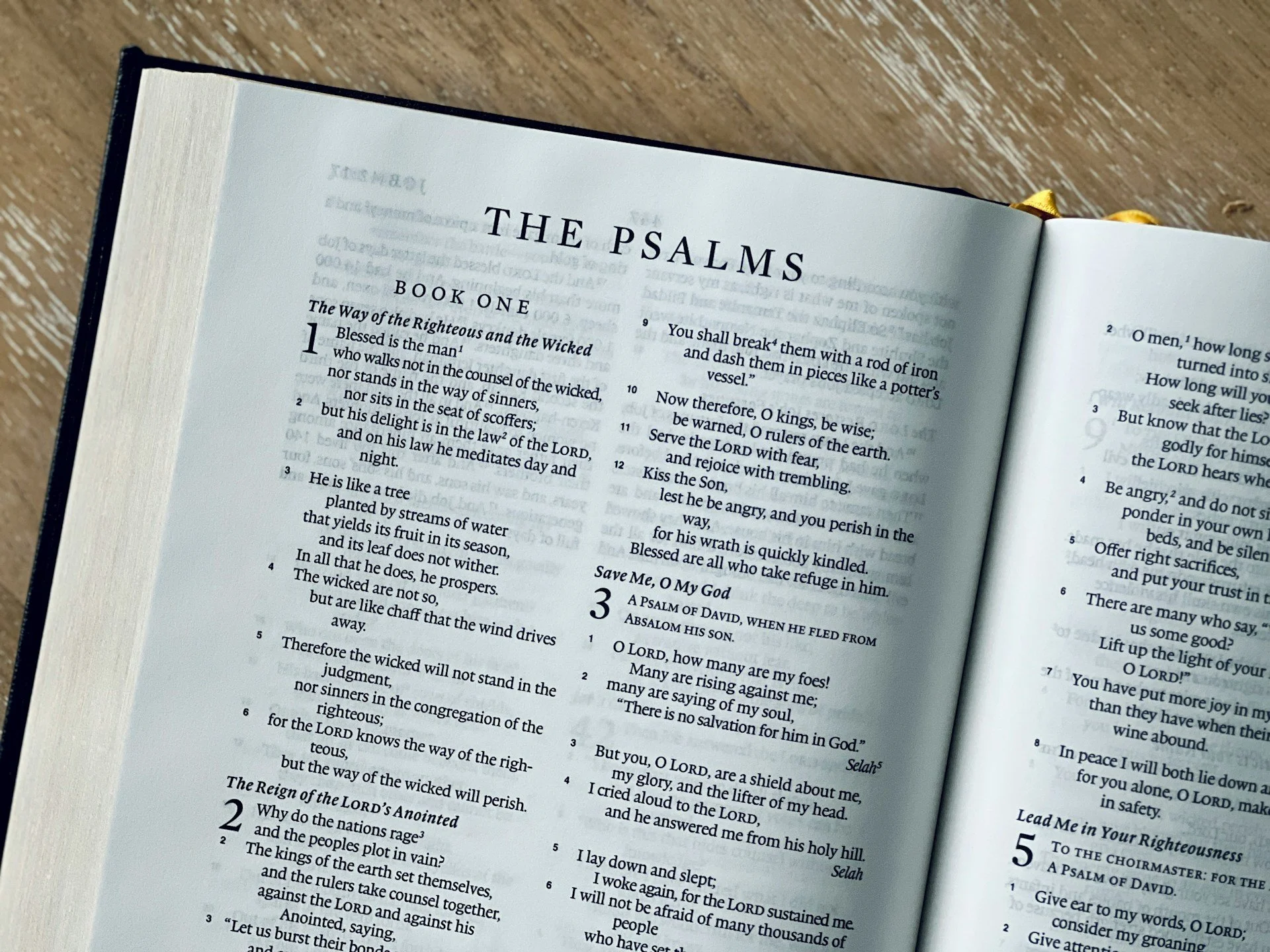Psalms Explained: A Historical Perspective on King David’s Book of Poetry
Have you ever taken on the challenge of reading a daily psalm? This book of the Bible is cherished by Christians across the world, and for good reason. Reading a Psalm every day is an easy way to focus the mind on praising God, since so many Psalms give words of praise and worship to our God. These verses also speak to our hearts on a personal level since they paint a picture of an entire range of human experience and emotion. But what’s the story behind the these scriptures and how can we benefit from them? Let’s take a dive into the famous book of poetry. Here is Psalms explained!
What is Psalms?
The Book of Psalms is a collection of 150 poetic writings—thought to be songs—found in the Old Testament. This book of scripture is often associated with King David since he wrote the vast majority of its contents. In fact, much of David’s life story is contained within these verses. However, other authors like Asaph, Solomon, and Moses contributed to the book of Psalms as well. This collection of ancient songs includes lyrics of worship, prayers, laments, and praise, and it expresses a full range of human emotion while glorifying God and seeking his presence in every circumstance:
Psalm 51 is a psalm of repentance after David is confronted with his sin of adultery and murder. The words of the song express regret and a desire to be made right with God again: “Wash me clean from my guilt. Purify me from my sin.” (Psalms 51:2)
Psalm 60 is a prayer for military victory over Edom. It is a desperate cry to God for help in the face of death and threat of defeat: “Now rescue your beloved people. Answer and save us by your power.” (Psalms 60:5)
Psalm 18 is a song written by David, and it praises God for rescuing him from Saul: “I called on the Lord, who is worthy of praise, and he saved me from my enemies.” (Psalms 18:3)
Psalms 90 is titled “A prayer of Moses”. The contents suggests that it was written during the time of Israel’s exodus, when the people were wandering in the desert. This song is filled with sorrow and longing. Moses repents for the people, asks God for his blessing and provision, and asks him to establish them as his people in the land of promise: “And may the Lord our God show us his approval and make our efforts successful. Yes, make our efforts successful.” (Psalms 90:17)
Psalm 137 is a lament written in the land of Babylon after the Israelites had been conquered and expelled from the land of Israel: “But how can we sing the songs of the Lord while in a pagan land?” (Psalms 137:4 NLT)
Psalms represents a unique perspective of Israel’s history. It contains verses written, not just through the course of one man's life, but through the lives of many different authors penned over a thousand years. One psalm might represent a period of time when Israel was united and successful. Another song represents a time when Israel was broken up and its people in exile.
When we understand what the book of Psalms truly contains, it’s no wonder that this book so beautifully represents the entire range of human condition. From brokenness and despair to ecstasy and joy.
How Psalms Speaks to Modern-Day Christians
Our walk with God has many ups and downs. The book of Psalms is so precious to so many Christians because, no matter where you are in life—up or down, left or right—there is a psalm for you. If you’re celebrating the goodness of God, there is a psalm that does just that. If you’re broken and in despair, there is a psalm that expresses your heart. If you don't know which way to go, there is a psalm that relates to your struggle.
The rich history of the people of Israel expressed throughout the book of Psalms is such an amazing blessing to each of us. This book covers a wide range of encounters with God that are experienced over the course of time.
When we read a psalm of thankfulness to God, it helps us to be grateful for the peace of a beautiful day. A psalm in response to victory in a bloody battle can give us confidence in the victory God has over our own battles. A prayer of thanks for a blessing of riches and wealth from God can help us understand the generosity of his provision in our own lives.
The Power of a Daily Psalm
No matter the life event that inspired a Psalm, each one represents the beauty and power of humanity reaching out to touch God. Regardless of where we are in life, or when we read each Psalm, we are joining with ancient generations of people to worship, thank, and commune with God. We are reaching out to a God who has shown himself faithful for millennia to respond to us whenever we call. That is a powerful way to incorporate scripture into our lives!



